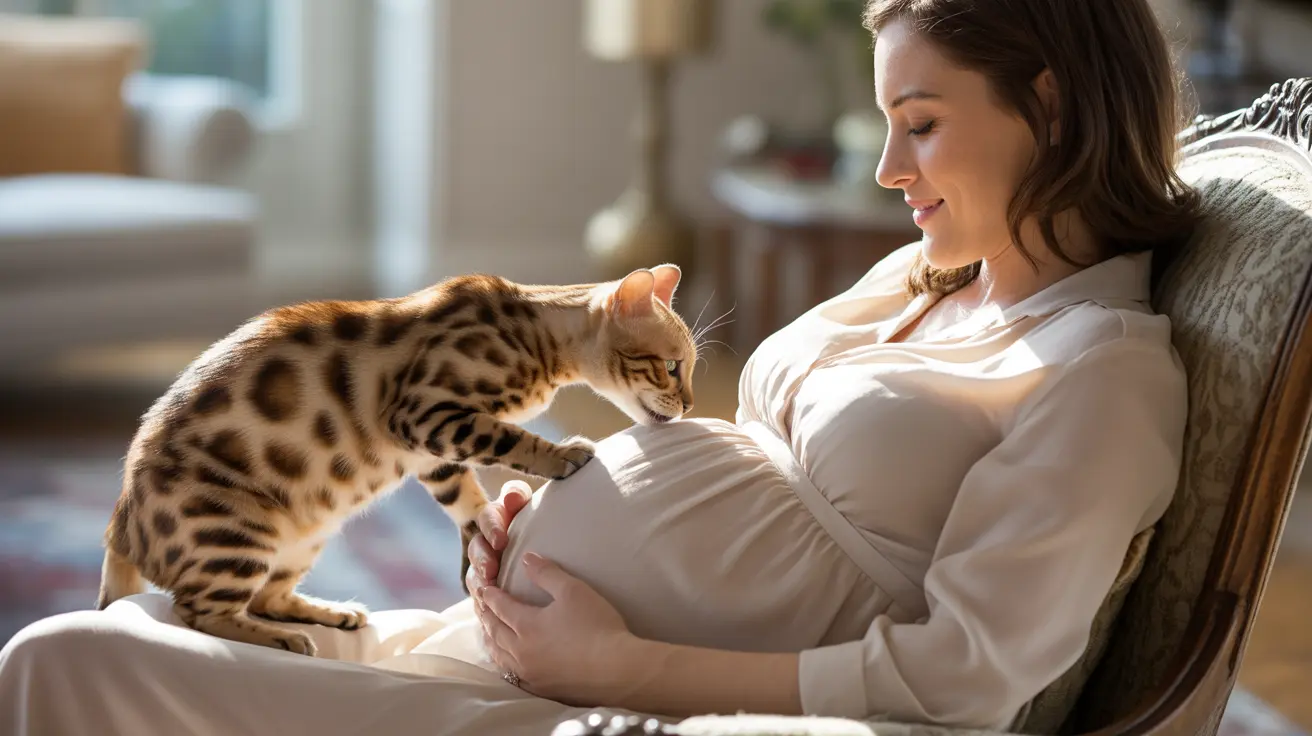Many cat owners have experienced mysterious changes in their feline friend's behavior during pregnancy. From increased affection to newfound protectiveness, these behavioral shifts often leave expectant mothers wondering: do cats know when you're pregnant? While the answer isn't straightforward, scientific research and expert insights help explain this fascinating phenomenon.
In this comprehensive guide, we'll explore the scientific evidence behind cats' ability to detect pregnancy, understand the biological changes they might notice, and learn how to manage their behavior during this significant life transition.
The Science Behind Cats' Sensory Abilities
Cats possess extraordinary sensory capabilities that make them highly attuned to changes in their environment and their human companions. With approximately 200 million odor-sensitive cells in their noses (compared to humans' mere 5 million), cats have an exceptional ability to detect subtle changes in scent that humans can't perceive.
This heightened sense of smell, combined with their natural sensitivity to routine and behavioral changes, enables cats to notice various pregnancy-related alterations in their owners.
Physical and Hormonal Changes Cats May Detect
Scent Changes During Pregnancy
During pregnancy, your body undergoes significant hormonal changes, producing increased levels of hormones like hCG, progesterone, and estrogen. These hormonal fluctuations can alter your natural scent in ways that your cat may notice, even if you can't detect the difference yourself.
Body Temperature and Physical Changes
Pregnant women typically experience a slight increase in body temperature, which heat-seeking cats might find particularly attractive. Additionally, as your body changes and your belly grows, cats may show increased interest in these physical modifications.
Common Behavioral Changes in Cats During Pregnancy
Increased Affection and Attention
Many cats become notably more affectionate during their owner's pregnancy. They might follow you around more frequently, spend more time on your lap, or sleep closer to you than usual. This behavior could be linked to their detection of physical changes or their response to alterations in your routine.
Protective Behaviors
Some cats display protective instincts toward their pregnant owners, becoming more vigilant or even slightly aggressive toward visitors. This behavior might stem from their perception of their owner's increased vulnerability during pregnancy.
How to Support Your Cat During Pregnancy
Maintaining Routine
Cats thrive on consistency, so maintaining their regular feeding, playing, and attention schedules during your pregnancy can help minimize stress and behavioral issues. This becomes especially important as you prepare for the arrival of your baby.
Creating Safe Spaces
As your home environment changes to accommodate baby preparations, ensure your cat has quiet, safe spaces to retreat when feeling overwhelmed. This might include elevated perches, quiet corners, or dedicated cat rooms.
Frequently Asked Questions
How do cats behaviorally respond when their owner is pregnant?
Cats may become more affectionate, protective, or occasionally distant. Common behaviors include increased following, lap-sitting, belly-sniffing, and sometimes bringing "gifts" to their owners.
Can cats detect pregnancy through changes in their owner's scent or hormones?
While there's no definitive scientific proof, cats' superior sense of smell likely enables them to detect hormonal changes that affect their owner's scent during pregnancy.
At what stage of pregnancy might cats start noticing changes in their owner?
Some cats may detect changes very early in pregnancy, potentially within the first few weeks, though this varies greatly among individual cats and circumstances.
Why do cats sometimes become more affectionate or protective during pregnancy?
This behavior likely stems from their detection of physical and hormonal changes, combined with their natural instinct to protect vulnerable members of their family group.
How can I help my cat adjust to changes in our home during my pregnancy?
Maintain consistent routines, provide safe spaces, offer regular attention, and gradually introduce new baby items to help your cat adapt to the upcoming changes.
While scientific evidence doesn't conclusively prove that cats can consciously recognize pregnancy, their remarkable sensory abilities and close bond with their owners enable them to detect and respond to the various changes that occur during this special time. Understanding and accommodating these behaviors can help strengthen your relationship with your feline companion as you prepare for your new arrival.






